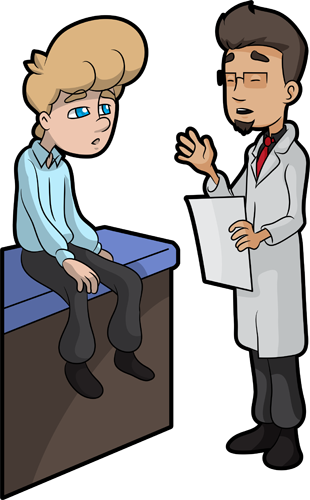Seeking Genetic Links for BiPolar & Autism disorders

 Bipolar disorder is one of the most important psychiatric illnesses because it is fairly common - affecting between 1 and 3 percent of the population - and quite debilitating. So, what about genetic profiling?
Bipolar disorder is one of the most important psychiatric illnesses because it is fairly common - affecting between 1 and 3 percent of the population - and quite debilitating. So, what about genetic profiling?
Although many patients are helped by treatments, such as lithium, about one third of people affected by BD do not do well with current therapies.
Although it's long been known that bipolar disorder is highly inheritable, identifying specific genetic variants that contribute to the illness has proven difficult.
Bipolar disorder may share some rare genetic variants with autism and schizophrenia, suggests a study in a recent study in JAMA Psychiatry.
Researchers came to their findings after conducting exome sequencing of families affected by bipolar disorder. Through comparing exome sequences of family members, investigators identified 84 rare variants in 82 genes that segregated with bipolar disorder and were likely to be damaging to the proteins the genes encoded.
Next, researchers searched for the rare variants in 3 case-control datasets that contained the genomic sequences of 3,541 people with bipolar disorder and 4,774 people without the condition.
The approach identified 19 genes that that were overrepresented in patients with bipolar disorder, compared with the control group.
“The results were not strong enough for us to say, ‘We have pinpointed the genetic culprits.’ But it was strong enough for us to remain interested in these genes as potential contributors to bipolar disorder," said researcher James Potash, MD, professor and head of the department of psychiatry at the University of Iowa Carver College of Medicine in Iowa City. When researchers looked at the 19 genes as a group, they noticed several belong to groups of genes previously implicated in autism and schizophrenia.
When researchers looked at the 19 genes as a group, they noticed several belong to groups of genes previously implicated in autism and schizophrenia.
“It turned out that the schizophrenia and the autism genes were all more represented among our 82 genes than you would expect by chance,” Dr. Potash explained. “And when we looked at our whittled down group of 19 genes, the autism genes continued to be unexpectedly prominent among them.”
The research was funded by grants from The National Institute of Mental Health at the National Institutes of Health (NIH) and the National Alliance for Research in Schizophrenia and Affective Disorders (NARSAD).

